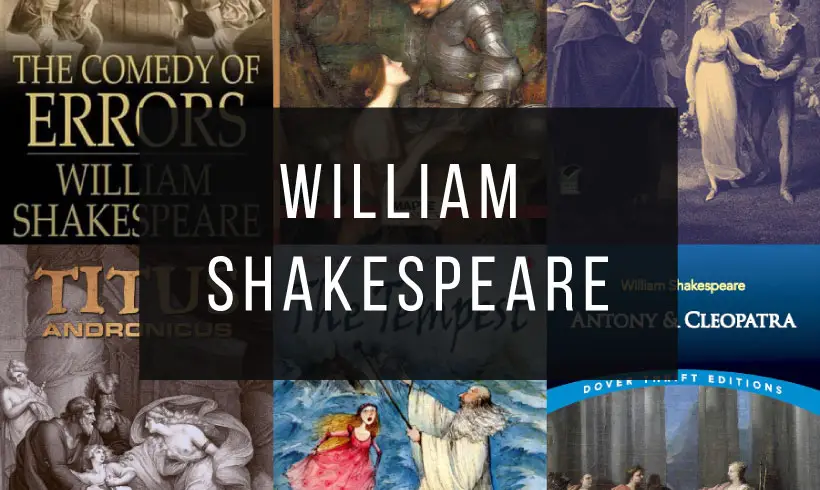Experience the timeless brilliance of William Shakespeare with our free collection of William Shakespeare books in PDF format.
William Shakespeare, the Bard of Avon, is the most celebrated playwright and poet in history, whose works explore the depths of human emotion, ambition, and morality. His stories have resonated for centuries and continue to captivate readers and audiences alike.
From the romantic tragedy of Romeo and Juliet to the political intrigue of Julius Caesar, the haunting Hamlet, and the comedic charm of A Midsummer Night’s Dream, William Shakespeare’s plays and sonnets offer something for everyone.
Perfect for lovers of classic literature, theater enthusiasts, and anyone exploring the roots of English storytelling, this collection brings you the genius of a writer whose influence knows no bounds.
Download these William Shakespeare books in PDF now and enjoy the works of a literary icon whose legacy has shaped the world of art and culture.
1) The Comedy of Errors

The Comedy of Errors is a typical twin comedy drama and very Shakespearean.
Two sets of twins are separated by an atrocious storm. Two of them end up in one place, the other two in another, and herein lies the premise of our plot. The pairs of twins meet in the same town, and the comedy begins when the wife and friends of one of the twins mistake the newly arrived brother for the first mentioned.
The same drama happens to their servant, whose twin is the servant of his master’s twin. It’s really not that complicated when you read the list of characters.
2) Titus Andronicus
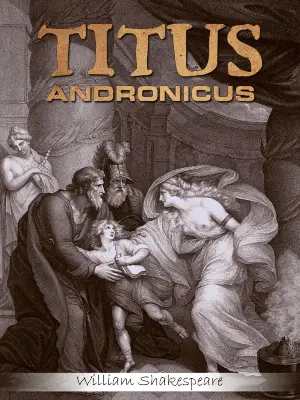
Titus returns to Rome after long years of war. He has seen most of his sons die in the service of the Empire and only wants to retire. With him he brings the queen of the Goths and her children as prisoners.
It is not long before the Queen of the Goths seduces the new emperor, whose greedy ways have already caused problems for Titus and his family. Soon, Titus finds himself betrayed by the Empire he served so diligently, the Goths gradually driving him mad by killing, maiming or exiling the remnants of Titus’ family.
But the queen of the Goths is not having a good time either, as she finds herself pregnant by her malicious servant, Aaron, who has plans of his own. As she strives to avenge herself and her murdered son, she forgets that she still has two other sons she could lose.
Titus Andronicus must hand over the power of his empire to one of his sons after the war with the Goths. The new leadership is marked by extreme lust and eventual oppression of Titus’ people. Tamora, the former Goth queen, seduces the new ruler and works with her sons to drive Titus mad and ruin his family.
3) The Rape of Lucrece
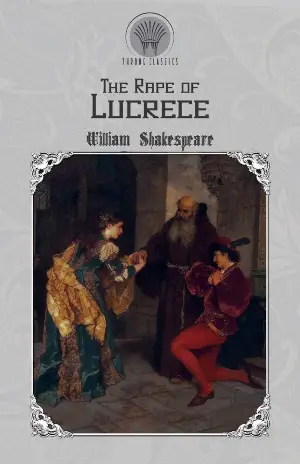
The Rape of Lucrece is a narrative poem. In 509 BC, Lucrece was raped by Tarquin, the son of the king of Rome. Lucrece was the wife of a Roman aristocrat. She committed suicide and her body was paraded through the Roman Forum.
A revolt ensued and the royal family was banished. Thus began the beginnings of the Roman republic.
Shakespeare used this story as the basis for his poem.
4) The Winter's Tale
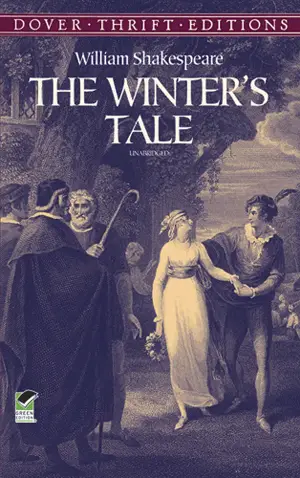
The Winter’s Tale is a play in five acts of the romantic comedy genre, written between 1610 and 1611 and performed in 1611. Its title alludes to the fantastic stories told around the fire.
It tells the story of Leontes, king of Sicily, who is married to Hermione, and both are visited by Polixenes, king of Bohemia and childhood friend of the former. Due to unfounded suspicions, Leontes believes that his wife and friend have betrayed him, and consumed by jealousy he orders Polixenes poisoned and Hermione imprisoned.
Upon being warned of the situation, Polixenes decides to flee, while Hermione gives birth to a baby girl while in prison. This play deals with the damage that jealousy can cause to families and friendships, as well as the redemption of past mistakes.
5) King John
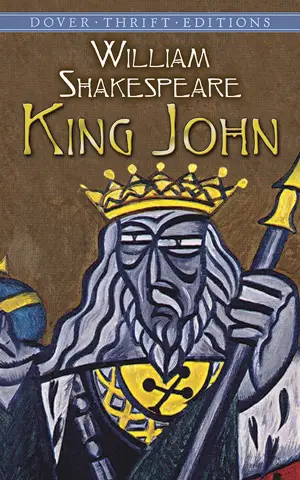
This play by Shakespeare dramatizes the reign of John, King of England who ruled between the years 1199 and 1216. It is assumed to have been written in the mid-1590s and was published in 1623 in the First Folio.
King John, also known as The Life and Death of King John tells the story of this King going to war against the French, who demand that he relinquish the throne so that his nephew Arthur can take his place.
In the course of the 5-act plot, John has conflicts with the church, turns the nobles against him and is surrounded by various characters who come to influence him. Among these characters are his mother, Queen Eleanor and Philip the Bastard.
6) A Midsummer Night's Dream
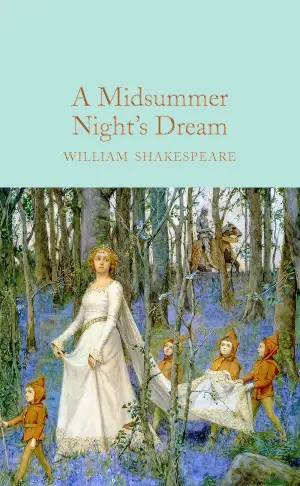
Theseus, the Duke of Athens, is planning his wedding with Hippolyta, queen of the Amazons. He hires Philostrate to organize the spectacle of a four-day wedding festival. Egeus, a local nobleman, arrives with his daughter Hermia, as well as Lysander and Demetrius. Egeus wants Hermia to marry Demetrius, who loves her, but Hermia is in love with Lysander.
Hermia and Lysander plan to elope, and Helena, Hermia’s friend who is in love with Demetrius, tells Demetrius, and one after another, they all end up in an enchanted forest. Oberon, Titania and Puck, a particularly mischievous goblin, manage, after many humorous mistakes, to make Lysander love Hermia and Demetrius love Helena. The play ends with a collective wedding.
7) Romeo and Juliet
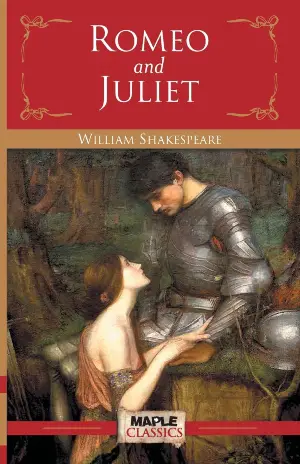
Romeo (Montague), who is in love with Rosaline, goes to a party to try to forget her or soothe his broken heart. At this party he meets Juliet and immediately falls in love with her. He later discovers that she is a Capulet, the rival family of the Montagues.
He decides that he loves her anyway and they confess their love to each other during the famous «balcony scene» in which they agree to marry secretly the next day.
Friar Laurence agrees to marry them to put an end to the feud between the families. Unfortunately, the feud escalates and Mercutio (Montague), a good friend of Romeo’s, ends up fighting with Tybalt (Capulet), Juliet’s cousin. Tybalt kills Mercutio, which causes Romeo to kill Tybalt in a rage. As a result, Romeo is banished from Verona.
8) The Tragedy of Julius Caesar
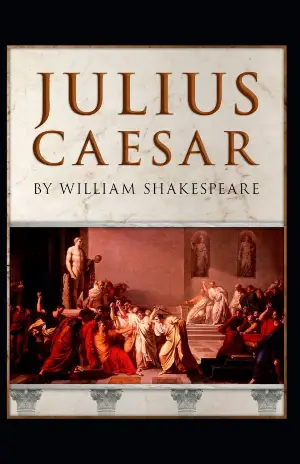
The city is full of great rumors and tensions. There are omens of fear in the sky, omens in the air and soothsayers weep. Caesar is popular and may be crowned emperor: Rome’s proud history as a republic would end. His jealous enemies plan to finish him off, but they need Brutus’ help to make their plot seem more noble and popular, as the people respect Brutus; he cares about democracy and the republic, and only opposes Caesar because of Rome’s great traditions, not out of jealousy.
Tensions rise and Brutus becomes one of the main conspirators. There are now so many people who know the secret that they could give themselves away at any time. Caesar becomes suspicious and may become too nervous to go out in public. Brutus wisely urges the conspirators to restraint: They should only «go after» Caesar and not «kill» his supporters, as this would lose them popular support.
9) As You Like It
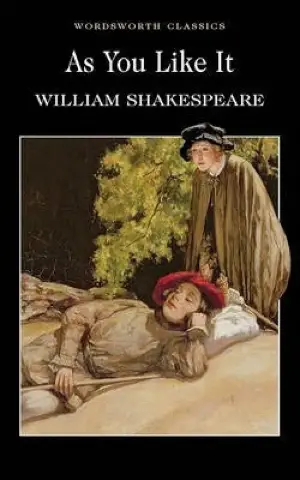
«All the world’s a stage… » Duke Senior and his courtiers have been overthrown by his brother Duke Frederick, and have gone to live in the Forest of Arden. Duke Senior’s daughter Rosalind, is also banished, but the usurper’s daughter Celia (Rosalind’s cousin) accompanies her.
The court fool, Touchstone, accompanies the banished daughters into the wild forest. Orlando, the honorable son of one of the courtiers, also goes to the forest after winning a wrestling match and falling in love with Rosalind.
There he is reunited with her, disguised as a man, and all the characters live happy adventures in nature.
10) The Tempest
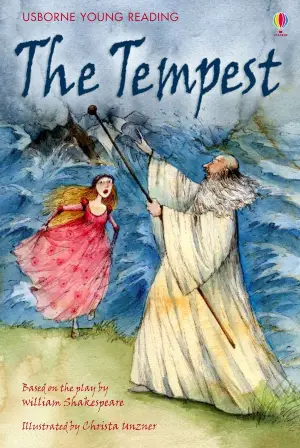
Prospero uses magic to conjure up a storm and torment the survivors of a shipwreck, including the king of Naples and Prospero’s treacherous brother Antonio.
Prospero’s slave Caliban plots to rid himself of his master, but Prospero’s spirit servant Ariel thwarts him. The king’s young son Ferdinand, believed dead, falls in love with Prospero’s daughter Miranda.
Their celebrations are interrupted when Prospero confronts his brother and reveals his identity as the usurped Duke of Milan. The families are reunited and all conflicts are resolved. Prospero grants Ariel her freedom and prepares to leave the island.
11) The Tragedy of Hamlet, Prince of Denmark
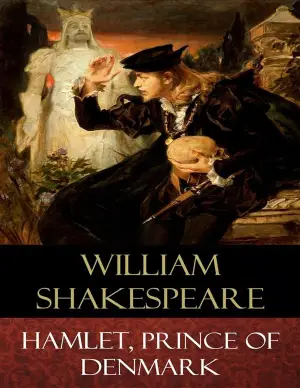
Hamlet is a story about how the ghost of a murdered king haunts the living with tragic consequences. A vengeful ghost and the murder of a brother dominate the bleak landscape of Hamlet’s Denmark.
The play begins with an encounter between young Hamlet, Prince of Denmark, and the ghost of his father. The ghost tells Hamlet that he was murdered by his brother Claudius, who then promptly married his widowed queen, Gertrude. The ghost presses Hamlet to take revenge on the man who stole his throne and his queen, and Hamlet promises to do so.
Hamlet is arguably Shakespeare’s greatest play, tragicomic, complex, and one of the best of its time. It is a psychologically gripping and morally ambivalent play that will haunt you long after its final scene ends.
12) Antony and Cleopatra
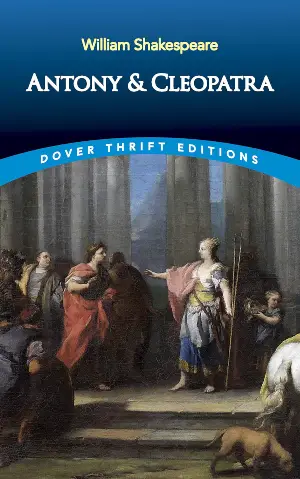
Antony, Octavius Caesar and Lepidus form a triumvirate that rules the Roman Empire; but Antony prefers to spend his free time in Egypt as consort of Queen Cleopatra rather than in Rome. News of his wife’s death, and of a revolt threatened by the young Pompey, provokes his return, to Cleopatra’s disapproval.
A meeting takes place between Caesar, Lepidus and Antony, in which they recognize the importance of maintaining their alliance. As a show of good faith, Antony agrees to marry Octavia, Caesar’s widowed sister. Cleopatra receives the news of this agreement with great anger, to the bewilderment of the messenger who brings it.
This is only the beginning of the great play Antony and Cleopatra by William Shakespeare.
13) All's Well, that Ends Well
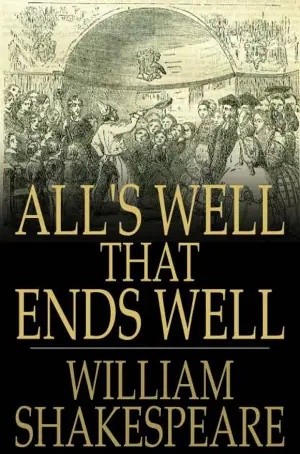
The son of the Countess of Roussillon, Bertram, goes to Paris to help the King of France. Helena, a lady under the countess’s protection, has fallen in love with Bertram. She plans to travel to Paris to use her medical knowledge to try to cure the king, who is ill.
Helena successfully cures the king and he rewards her by arranging her marriage to Bertram even though he does not love her. After the marriage, Bertram flees to serve the Duke of Florence in the wars to escape his new wife.
Helena returns home to live with the Countess. Bertram sends a letter to his mother, the Countess, telling her that he will never accept Helena unless she has carried his child and wears his family ring, which seems impossible since he is away in Florence.
14) Troilus and Cressida
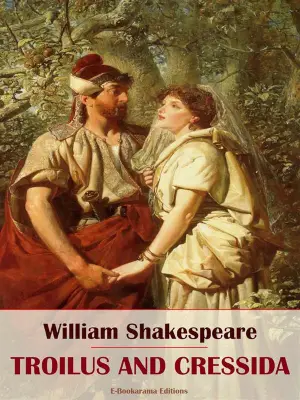
It is believed that this play was written in 1602, being published later in 1609. If you like Greek and Trojan myths, this play is for you, as it is set during the Trojan War.
Troilus and Cressida is not a conventional tragedy, since its protagonist does not die, but it does end on a somber note due to the death of the Trojan nobleman Hector added to other events such as heartbreak.
Moreover, it has a tone that oscillates between comedy and sad melancholy, which is why it is believed that Shakespeare suffered from depression at the time of writing it. In addition to war, among its main themes are the breaking of vows and the commitment and lack of morality of some of its characters.
15) Othello
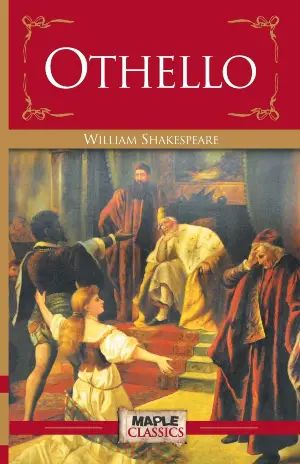
Othello is undoubtedly one of the greatest tragedies ever written. It is one of Shakespeare’s last plays, one of his best. Although originally based on a short story, Shakespeare adapted it and made it his own.
Othello is a general in the service of Venice. Iago is Othello’s friend, but then Othello promotes Michael Cassio to the position of personal lieutenant and Iago becomes incredibly jealous. Iago begins an evil and malicious campaign against the hero. Othello escapes with Desdemona, but Iago begins to plot against them. Othello is very suspicious of Desdemona.
He confides to Iago that he plans to poison Desdemona. Plots and murders ensue and Othello returns to the castle to kill his innocent wife, finally suffocating her to death. Emilia tells Othello the truth about the scheming Iago. Othello wounds Iago and then kills himself. Iago kills Emilia.
16) King Lear

King Lear decides that he will divide his kingdom into three sections and give one section to each of his daughters. To decide how much land and power each daughter will receive, Lear makes all three of them pledge their love to him. The two greediest daughters do so, lying to please Lear, but his favorite does not, so he gives everything to her other scheming daughters and their husbands.
But after the girls gain land and power, they no longer feel any affection for their father. Lear must face the terrible mistake he made in casting aside the only daughter who truly loved him.
17) Macbeth
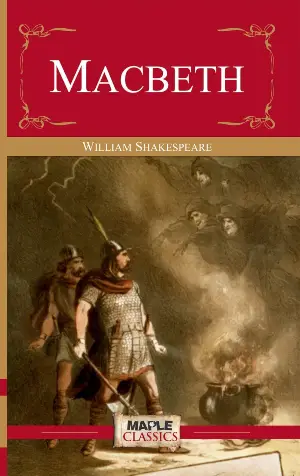
Macbeth (or “The Scottish Play”) is no doubt familiar to almost anyone who has graduated from high school.
In William Shakespeare’s dark tragedy, Macbeth surrenders to his own «ambition». In doing so, he commits regicide, among other sins, only to be overthrown (as King Henry said, «Uneasy lies the head that wears a crown!»).
In this five-act drama, we find that superstition plays an important role (witches have a great influence on the ambitions of Macbeth and his wife). Shakespeare also spends time wooing his Elizabethan audience with the ghost story of the time. At the end, «Birnam wood marches to High Dunsinane» and Macbeth realizes he has lost everything, and «To-morrow, and to-morrow, and to-morrow» enters his little heartbeat and justice is done.
18) The Tragedie of Coriolanus
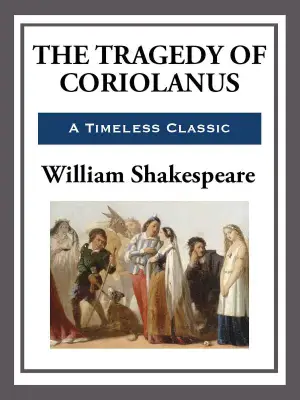
This play is a tragedy in five acts that is supposed to have been written between 1605 and 1608. It was also first published in First Folio in 1623. It is based on the life of the Roman leader Caius Marcius Coriolanus, a general of the time of the Republic.
He became known for his military exploits against the Volscians, defeating the enemy army in defense of Rome. Thanks to his success, the Senate appointed him consul, but because of his contempt for the plebeians, he failed to get the vote of the people and was banished from Rome.
In exile he allies with his old enemy and leads an assault on the city. He goes so far as to attack Rome but his mother convinces him not to do so and his new ally kills him for treason.
19) Pericles, Prince of Tyre
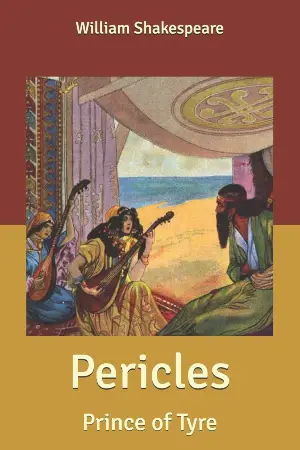
Pericles, the prince of Tyre, leaves his home to escape death to win a jousting contest and marry a princess.
Once he is able to return home, his family sails with him, but a storm separates them, so Pericles returns alone. Years later, Pericles finds his daughter and is reunited with the wife he thought dead.
20) Cymbeline
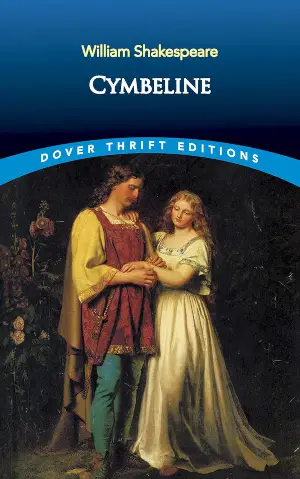
Also known as The Tragedie of Cymbeline or Cymbeline, King of Britain is a tragedy in 5 acts but it also features genres such as romance and comedy. Although it is unknown when the play was written, it was performed in 1611.
The plot involves the themes of jealousy and innocence, also present in other Shakespeare plays. It tells the story of Imogen/Innogen (daughter of King Cymbeline) and Leonatus who marry in secret for which Leonato is banished.
During his stay in Italy, Leonato bets with Iachimo on the fidelity and honesty of his wife, and later on being deceived by Iachimo he accuses his wife of infidelity. Faced with the situation, Imogen flees and becomes a page for the Roman army. At the same time, the queen has influenced Cymbeline to revolt against Rome and war breaks out.
21) The Two Noble Kinsmen
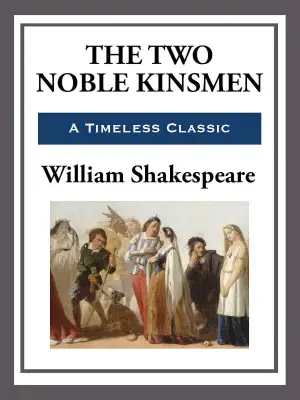
It is believed that this romantic tragicomedy was written jointly by William Shakespeare and John Fletcher, but since it is not included in the First Folio, there are those who believe that Shakespeare did not participate in its creation.
The Two Noble Kinsmen tells the story of Palamon and Arcite who are cousins and best friends who, after being imprisoned by the Athenians, see from the window of the dungeon in which they find themselves the princess Emilia, with whom they both fall in love and this causes a rivalry to arise between them.
Then Arcite is released and forbidden to return to Athens, which he ignores and returns in search of Emilia, while Palamon manages to escape from the dungeon thanks to the help of the jailer’s daughter. The two rivals meet and decide to end their competition for Emilia’s love by fighting in a public tournament.
22) Henry VI, Part 1
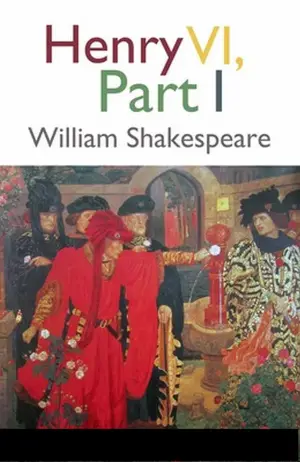
It is a play in 5 acts possibly written in 1591, also known as 1 Henry VI, and set in the life of King Henry VI of England. It is believed to have been written in collaboration with Christopher Marlowe and Thomas Nashe.
After the death of Henry V, Henry VI is still young, so the nobles rule England while fighting the French, and when Henry VI becomes king, the noble houses begin to divide and take sides between York and Lancaster.
The plot unfolds between events such as the loss of England’s French territories, the political situations that trigger the War of the Roses, and the personal disputes that tear apart the English political system. At the same time, the nobles try to find Henry a wife and do not agree on whom Henry chooses.
23) Henry VI, Part 2
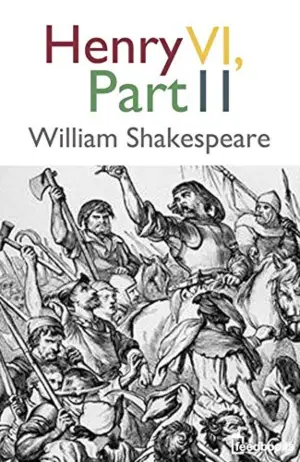
Henry VI, Part 2 (often written as 2 Henry VI) is believed to have been written in 1591. It is a play in five acts considered by many critics to be the best of the Henry VI trilogy.
As the play unfolds, various events both political and from the king’s personal life are presented, such as: The conspiracy planned by Queen Margaret -Henry’s wife- together with her lover, being important to highlight that Henry decided to marry her despite the fact that the nobles did not agree with the union.
We also have the inability of the King to dissipate the disputes among his nobles, the death of his trusted advisor and the inevitability of an armed conflict by increasing tensions between York and Lancaster. This leads to a rebellion of the Duke of York where his supporters proclaim him king which forces Henry to flee.
24) Henry VI, Part 3
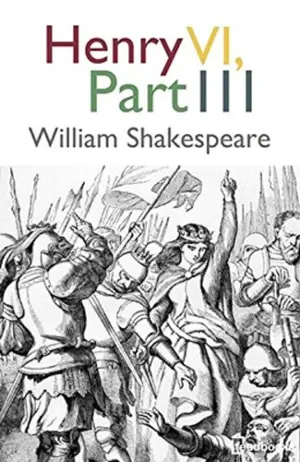
Henry VI, Part 3 is a play in five acts believed to have been written in 1591. It presents the aftermath and horrors of the armed conflict that began in Henry VI, Part 2, in which the nation is thrown into chaos, family ties are broken and moral codes are lost.
Among the main themes of the play is revenge, which is seen by many of the characters as the driving force to guide their decisions and carry out their actions. Arguably, revenge is the common goal of both sides of the conflict.
Another important theme that follows revenge is the quest for power, the desire for dominance and control, to the point that past conflicts become less important as each side desperately seeks victory.


